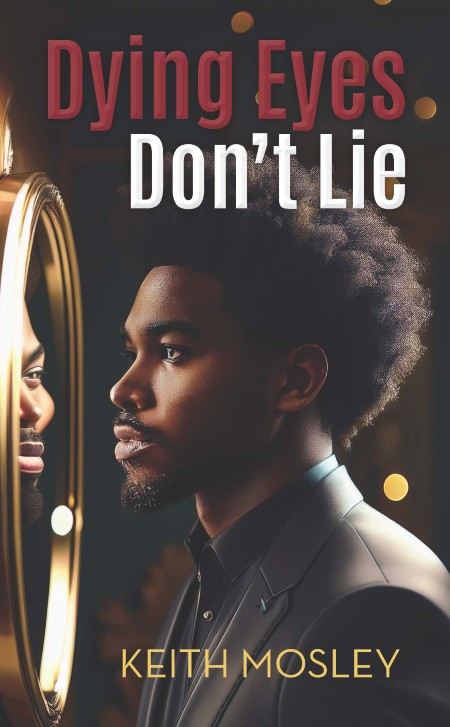Book Review: Dying Eyes Don’t Lie
Reviewed by:
Eryka ParkerSet in 1981, Dying Eyes Don’t Lie by Keith Mosley is a genre-blending thriller that explores justice, community, and legacy through the eyes of two compelling protagonists—Detective Albert Yelsom and private investigator Chase Watkins. Though they hail from different cities and walks of life, both men are deeply committed to protecting their communities and uncovering the truth, no matter the cost.
Detective Yelsom serves on the drug task force with the Chicago Police Department, but his work extends far beyond the badge. Born stillborn and revived by his shaman grandmother, Albert possesses supernatural abilities that allow him to see through the eyes of the dead. He uses this spiritual gift to solve crimes, protect fellow officers, and search for his estranged mother, who left him in his grandmother’s care as a child. When a vigilante begins killing civilians and law enforcement officers across multiple cities, Albert finds himself drawn into a complex web of corruption and hidden truths—one that leads to a powerful political figure and secrets buried deep in Louisiana’s past.
Chase Watkins, on the other hand, is a Vietnam veteran turned private investigator and bounty hunter living in Los Angeles. When the nephew of a fellow war buddy is murdered on a college campus, Chase launches his own investigation to bring the killer to justice. His pursuit eventually intersects with Albert’s, tying together seemingly unrelated murders and conspiracies in a multi-city chase for truth and accountability.
Mosley’s storytelling is rich and immersive, blending mystery, suspense, supernatural elements, and a strong sense of place. From Chicago’s tight-knit neighborhoods to the Southern culture of Louisiana and the streets of L.A., the settings in this novel feel like characters in their own right. The author skillfully uses regional dialects, references to local sports teams, and culinary details to transport the reader into each character’s world.
One of the novel’s standout qualities is its cast. Albert and Chase are both fully realized, complex men, and even the supporting characters are drawn with care. Each character has a backstory that feels authentic, giving the impression that their lives extend far beyond the page. The sense of community is especially moving—neighbors look out for each other, churches provide sanctuary, and families step up to protect their own. This recurring theme of loyalty and togetherness adds warmth and emotional depth to an otherwise intense narrative.
The pacing is strong throughout, with several suspenseful turns that kept me eagerly turning pages. Mosley balances multiple storylines and points of view with skill, offering readers a broad lens on the social justice issues at the heart of the book. That said, the chapter lengths—ranging on average, from twenty to thirty pages—felt a bit long for a mystery/thriller, a genre that typically thrives on snappier, punchier chapter breaks. At times, it may be challenging to keep track of the many minor characters, particularly as the story jumps between cities and perspectives. Taking notes to stay oriented is recommended.
Stylistically, Mosley writes with a grounded, cinematic tone that’s both accessible and evocative. His dialogue feels natural, and the humor sprinkled throughout helps balance the darker subject matter. The supernatural elements don’t feel forced—they enhance rather than distract from the story’s emotional and narrative core.
Overall, Dying Eyes Don’t Lie is a thoughtful, engaging, and original novel that blends supernatural mystery with real-world issues and I look forward to reading more works by this author. If you’re a fan of character-driven thrillers with heart, community values, and a touch of the mystical, this one’s worth adding to your shelf.


